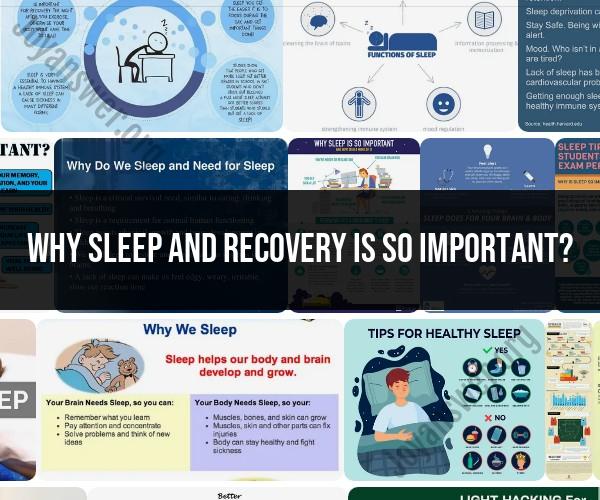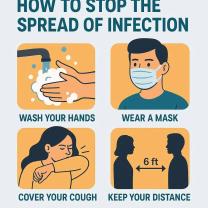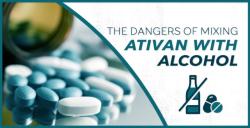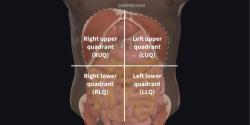Why sleep and recovery is so important?
Sleep and recovery are essential for maintaining overall health and well-being, and their connection is vital for several reasons:
Physical Restoration: During sleep, the body undergoes various processes that promote physical restoration and repair. This includes the release of growth hormone, which helps repair and rebuild tissues, muscles, and bones.
Cellular Repair: Sleep plays a critical role in cellular repair and maintenance. Cells repair damage, remove waste products, and regenerate during deep stages of sleep, supporting the body's immune system and overall health.
Energy Conservation: Sleep helps conserve energy by reducing the body's metabolic rate and energy expenditure. This energy conservation ensures that the body has the resources it needs for daily functioning and recovery.
Cognitive Function: Adequate sleep is essential for cognitive function, including memory consolidation, problem-solving, and creativity. It enhances learning and information processing, allowing the brain to function optimally.
Emotional Regulation: Sleep is crucial for emotional well-being and regulation. It helps stabilize mood, reduce stress, and enhance emotional resilience. Sleep deprivation is associated with increased emotional reactivity and irritability.
Immune Function: Sleep supports the immune system by promoting the production of immune cells and antibodies. A lack of sleep can weaken the immune response, making the body more susceptible to infections and illnesses.
Hormone Regulation: Sleep plays a role in regulating various hormones, including cortisol (stress hormone) and leptin (appetite-regulating hormone). Poor sleep can lead to hormonal imbalances, potentially contributing to weight gain and stress.
Physical Performance: Athletes and individuals engaged in physical activities rely on adequate sleep for physical performance and recovery. Sleep helps with muscle recovery, coordination, and overall athletic performance.
Pain Management: Sleep can be an effective natural painkiller. It reduces the perception of pain and supports the body's ability to cope with discomfort and injuries.
Longevity and Health: Consistent, restorative sleep is associated with increased longevity and a reduced risk of chronic health conditions such as cardiovascular disease, diabetes, and obesity.
Stress Reduction: Sleep is crucial for managing stress. It allows the body to recover from the physiological and psychological effects of stress, helping to maintain a healthy stress response.
Recovery from Illness and Injury: When the body is fighting illness or recovering from injury, sleep becomes even more critical. It aids in the healing process and helps the body regain strength.
Memory and Learning: Sleep supports memory consolidation, which is the process of transferring information from short-term to long-term memory. It enhances the ability to retain and recall information.
Decision-Making: Sleep-deprived individuals may experience impaired decision-making and judgment. A well-rested brain is better equipped to make sound decisions and solve complex problems.
Mental Health: Sleep and recovery are closely linked to mental health. Chronic sleep deprivation is associated with an increased risk of mood disorders, including depression and anxiety.
To optimize sleep and recovery, individuals should prioritize good sleep hygiene practices, such as maintaining a consistent sleep schedule, creating a comfortable sleep environment, managing stress, and avoiding stimulants close to bedtime. Recognizing the importance of sleep and prioritizing it in one's daily routine can have profound positive effects on overall health and quality of life.
Sleep and Recovery: The Critical Connection for Wellness
Sleep is essential for overall wellness, but it is especially important for recovery from physical and mental exertion. When we sleep, our bodies and minds have a chance to rest and repair themselves. This is crucial for recovery from injury, illness, and stress.
The Power of Rest: Why Sleep Is Essential for Recovery
During sleep, our bodies release hormones that promote tissue growth and repair. We also consolidate memories and process emotions during sleep. This is why it is so important to get enough sleep after a workout, a stressful day, or a traumatic event.
From Exhaustion to Revival: Prioritizing Sleep in the Recovery Process
If you are not getting enough sleep, you are more likely to experience fatigue, pain, and difficulty concentrating. You are also more likely to get sick or injured.
If you are trying to recover from an injury, illness, or stressful event, it is important to make sleep a priority. Aim for 7-8 hours of sleep per night. If you have trouble sleeping, try establishing a regular sleep schedule, creating a relaxing bedtime routine, and avoiding caffeine and alcohol before bed.
Here are some tips for prioritizing sleep in the recovery process:
- Set a regular sleep schedule and stick to it as much as possible, even on weekends. This will help to regulate your body's natural sleep-wake cycle.
- Create a relaxing bedtime routine. This could include taking a warm bath, reading a book, or listening to calming music. Avoid watching TV or using electronic devices in the hour before bed, as the blue light emitted from these devices can interfere with sleep.
- Make sure your bedroom is dark, quiet, and cool. Darkness helps to promote the production of melatonin, a hormone that regulates sleep. Noise and light can disrupt sleep, so make sure your bedroom is as dark and quiet as possible. A cool temperature is also ideal for sleep.
- Avoid caffeine and alcohol before bed. Caffeine and alcohol can interfere with sleep, so it is best to avoid them in the hours leading up to bedtime.
- Get regular exercise. Exercise can help to improve sleep quality, but avoid exercising too close to bedtime, as this can make it harder to fall asleep.
- See a doctor if you have chronic insomnia. If you have trouble sleeping for more than two weeks, talk to your doctor. They may be able to identify and treat any underlying medical conditions that are contributing to your insomnia.
Sleep is a vital part of the recovery process. By prioritizing sleep, you can help your body and mind to heal and recover more effectively.













